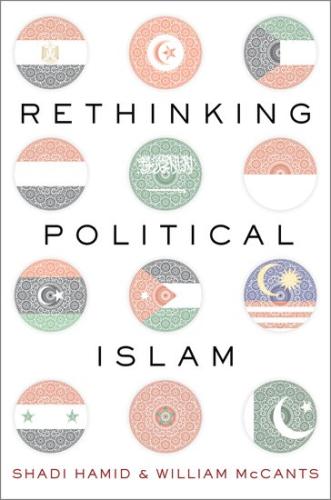On August 14, 2013, six weeks after a military coup against the Muslim Brotherhood-led government, over 800 people were killed near Rabaa al-Adawiya mosque in Cairo. It was the worst mass killing in modern Egyptian history, and it ended the Arab Spring—or what was left of it, writes Shadi Hamid. This piece originally appeared in The Atlantic.
Four years ago, the Arab Spring—or what was left of it—ended with a massacre. There were only two countries with largely peaceful democratic transitions. One of them was Tunisia; one of them was Egypt, the Arab world’s most populous nation and a bellwether for the region. On August 14, 2013, six weeks after a military coup against the Muslim Brotherhood-led government, over 800 people were killed near Rabaa al-Adawiya mosque in Cairo. It was the worst mass killing in modern Egyptian history.
By then, there had been two formative political moments in my life, the September 11th attacks and the Iraq War. And now there was a third. Friends who’ve known me both before the Arab Spring and after tell me that my writing has become darker. They’re probably right.
The first time I set foot in Rabaa, just a week before the massacre, I was surprised at how self-contained everything was. Along with tens of thousands of supporters of the deposed president, Mohamed Morsi, there were kitchens, pharmacies, food stalls, sleeping quarters, and a “media center.” You couldn’t just casually stroll in. At the makeshift entrance, about 50 feet off the street, volunteer guards, standing next to piled-up sandbags, were hurriedly checking IDs. As I walked in, people sprayed me with water. This, apparently, was their way of welcoming me. It was the peak of the humid Egyptian summer. Like many Egyptian protests, this one teetered somewhere between panic and jubilation.
The killing hadn’t happened yet (although there had already been two “smaller” massacres on July 8 and July 27). Rabaa was where young Muslim Brotherhood members, some of them still in college, told me of that mix of adrenaline and dread they felt as they drafted their wills and bid their families goodbye. As Egyptians waited for a massacre, they debated just how many people the new regime would be willing to kill, and when it might do it. Beyond the personal stories of death, fear, and families torn apart, Rabaa, and the military coup that preceded it, told a remarkable, and a remarkably sad, story of a country that appeared intent on destroying itself. To the extent that Egyptians insist on feeling pride in their country, it is a pride tainted by the events that millions of them—including members of my own family—were complicit in.
It is also a story of what happens when enough people lose faith in the possibilities of politics. The transition process from the authoritarian rule of Hosni Mubarak was flawed from the start. Mohamed Morsi, elected in June 2012, was the wrong person at the wrong time. But however bad the Brotherhood was at governing and however chaotic Egypt was beginning to feel, the country wasn’t exactly a theocratic dictatorship. Egyptians, then, could still oppose the government, and many actually did, with more than a million gathering in the June 30, 2013 protests. As I wrote with my colleague Meredith Wheeler three years ago: “Egypt under Morsi was undergoing a remarkably ordinary transition, neither wholly autocratic nor wholly democratic, falling almost exactly at the mean value of political transitions globally.” The democratic process, however flawed, provided Egyptians with recourse. There was politics, disagreement and debate, and a freewheeling (if often fact-free) press. Of course, it was this uncertainty of what Egypt might become—particularly if the Brotherhood kept winning elections—that frightened many Egyptians the most.
Democracy is war by other means. When democratic openings are closed suddenly, violence is inevitable. There is no longer any way to peacefully resolve fundamental disagreements between citizens. The use of force, with one side dominating (or eradicating) the other, is the only path left. To me, watching Egypt’s rapid decline provided a powerful vindication of democracy, but in the more basic, minimalistic sense. The democratic process wasn’t about improving people’s lives (although it could be). It wasn’t necessarily about producing better policy outcomes on things like healthcare or education. It was fundamentally about managing conflict peacefully and establishing legitimacy on a basis other than violence. The temptation to exclude and eliminate is always there, and especially now. But to understand how easily democracies, both new and old, can turn to violence is to understand that democracy supplies the first and last line of defense.
The Brookings Institution is committed to quality, independence, and impact.
We are supported by a diverse array of funders. In line with our values and policies, each Brookings publication represents the sole views of its author(s).






Commentary
The massacre that ended the Arab Spring
August 15, 2017